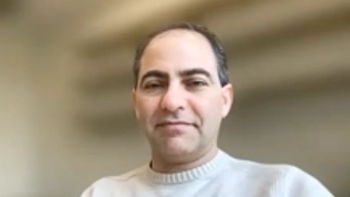
The associate professor at Harvard Medical School spoke with NeurologyLive® about the differences between patients with multiple sclerosis and those with NMOSD. [WATCH TIME: 3 minutes]

The associate professor at Harvard Medical School spoke with NeurologyLive® about the differences between patients with multiple sclerosis and those with NMOSD. [WATCH TIME: 3 minutes]
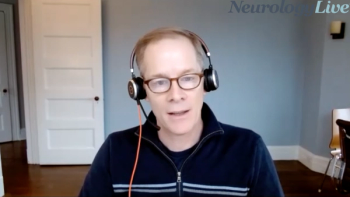
The senior vice president and chief scientific officer of the Parkinson’s Foundation provided perspective on recently published findings showing a nearly doubling of Parkinson disease incidence that previously reported. [WATCH TIME: 4 minutes]
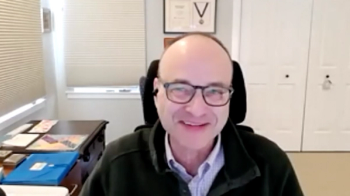
The lead of the Myasthenia Gravis Foundation of America Global Myasthenia Gravis Patient Registry spoke on 2 additional attributes of the patient registry. [WATCH TIME: 3 minutes]
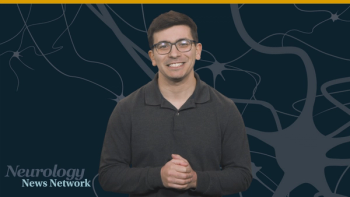
Neurology News Network for the week ending February 18, 2023. [WATCH TIME: 4 minutes]
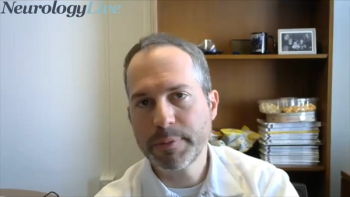
The vascular and interventional neurologist at Cleveland Clinic provided insight on a study presented at the 2023 International Stroke Conference that observed the clinical effectiveness of mechanical thrombectomy beyond 24 hours. [WATCH TIME: 6 minutes]

The assistant professor of neurology at the Yale School of Medicine spoke about the strength in the patient-clinician relationship in ensuring quality care for myasthenia gravis. [WATCH TIME: 4 minutes]
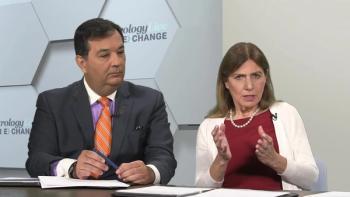
Drs Atri, Cohen, Sabbagh and McDade share their enthusiasm and optimism about the future outlook for Alzheimer’s disease.
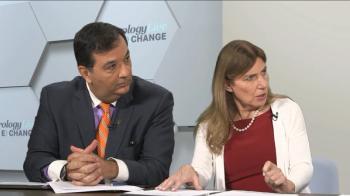
Dr Eric McDade shares information on different types of prevention trials to manage Alzheimer’s disease.
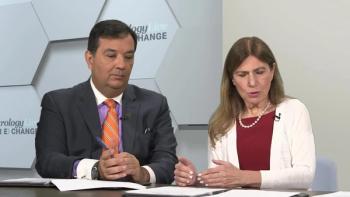
Expert neurologists share information on drugs with different mechanisms of actions that are being evaluated in clinical trials for Alzheimer’s disease.
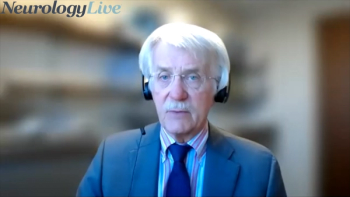
The director of the Alzheimer’s Disease Research Center at Mayo Clinic detailed the current issues with access and affordability to critical biomarkers in the screening and monitoring of patients in Alzheimer disease trials. [WATCH TIME: 3 minutes]
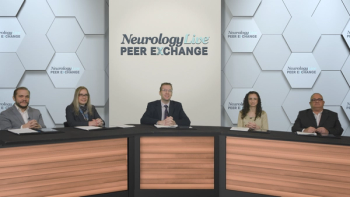
Drs Juliana Gurgel Giannetti, Rodrigo de Holanda Mendonça and Adriana Banzzatto Ortega consider best practices for management based on the type of spinal muscular atrophy, age, and the therapy received. Drs Juliana Gurgel Giannetti, Rodrigo de Holanda Mendonça e Adriana Banzzatto Ortega consideram melhores práticas de conduta baseados no tipo de atrofia muscular espinhal, idade e terapia recebida.

The expert panel discusses management of family expectations regarding post-therapy outcomes and strict patient monitoring. O painel de especialistas discute como lidar com expectativas das famílias em relação a resultados terapêuticos e em períodos de monitoramento rigoroso.
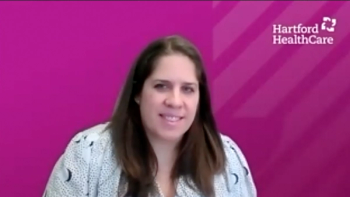
The maternal fetal medicine specialist at Hartford HealthCare Medical Group talked about the challenges of prescribing migraine treatment during pregnancy. [WATCH TIME: 4 minutes]
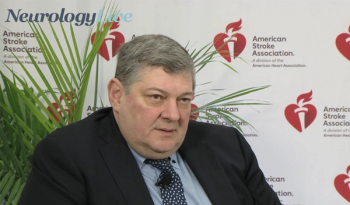
The medical director of the Cooper Neurological Institute spoke at the 2023 International Stroke Conference about notable research themes from the meeting. [WATCH TIME: 10 minutes]
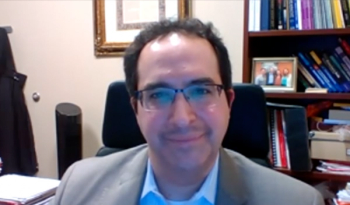
The medical director of the Hartford healthcare Headache Center in Connecticut discussed the significance of findings from a study assessing migraine during pregnancy. [WATCH TIME: 4 minutes]
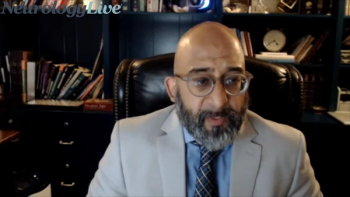
The director of Cleveland Clinic’s Cerebrovascular Center discussed the decisions mobile stroke units face and why opting for direct transfer to angiography is meant for certain scenarios. [WATCH TIME: 3 minutes]

Episode 30 of the AUPN Leadership Minute features Rohit Das, MD, of UT Southwestern Medical Center; and Julie Silver, MD, of Harvard Medical School. [WATCH TIME: 8 minutes]

For Valentine’s Day, the senior behavioral scientist at the RAND Corporation talked about the significance of sleep health and romantic relationships [WATCH TIME: 5 minutes]

The head of preclinical development at Imbrium Therapeutics provided an overview of positive safe and efficacy findings from the phase 2 study investigating sunobinop. [WATCH TIME: 4 minutes]
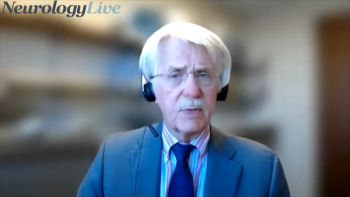
The director of the Alzheimer’s Disease Research Center at Mayo Clinic provided perspective on the emergence in antiamyloid therapies, assessing clinically meaningful benefit, and potential changes to trial design in the future. [WATCH TIME: 3 minutes]
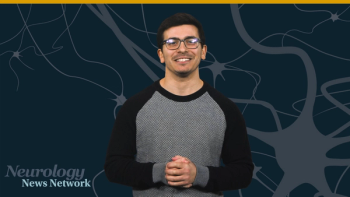
Neurology News Network for the week ending February 11, 2023. [WATCH TIME: 3 minutes]
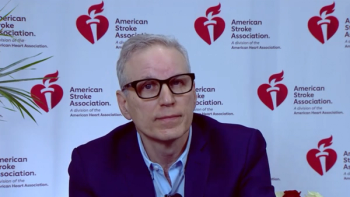
The professor of neurology at Harvard Medical School spoke at the 2023 ISC Conference about highlights from the STROKE-AF study after a 3-year follow-up. [WATCH TIME: 5 minutes]
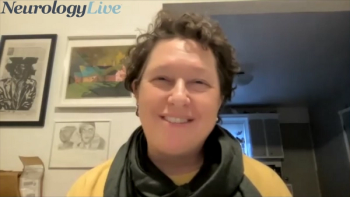
The chief training and education officer at the Parkinson’s Foundation discussed the inclusion of various medical professionals that assist in Parkinson disease care, and the need to provide access to educational tools to inform clinicians. [WATCH TIME: 5 minutes]

Drs Marcelo Kerstenetzky, Rodrigo de Holanda Mendonça and Adriana Banzzatto Ortega discuss role of primary care physicians and pediatricians in monitoring in SMA. Drs Marcelo Kerstenetzky, Rodrigo de Holanda Mendonça e Adriana Banzzatto Ortega discutem o papel de médicos da atenção primária e pediatras no monitoramento da atrofia muscular espinhal.

Drs Juliana Gurgel Giannetti, Rodrigo de Holanda Mendonça and John Brandsema highlight the importance of multidisciplinary care teams in monitoring and rehabilitation of patients with spinal muscular atrophy. Drs Juliana Gurgel Giannetti, Rodrigo de Holanda Mendonça e John Brandsema enfatizam a importância de equipes multidisciplinares no monitoramento e reabilitação de pacientes com atrofia muscular espinhal.
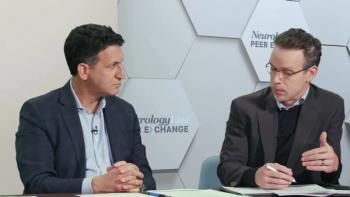
Drs McDade and Atri discuss differences and similarities between other ongoing anti-amyloid antibody trials in Alzheimer’s disease.
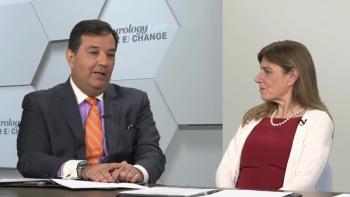
Drs Cohen, Atri, and Sabbagh share data on lecanemab, an anti-amyloid beta antibody, that was presented at CTAD 2022.
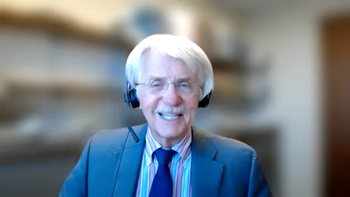
The director of the Alzheimer’s Disease Research Center at Mayo Clinic discussed a recently published paper focused on the expectations and clinical meaningfulness of randomized controlled trials in Alzheimer disease. [WATCH TIME: 4 minutes]

The assistant professor of neurology at Yale School of Medicine spoke about the importance of the relaunch of the patient registry for research in myasthenia gravis. [WATCH TIME: 3 minutes]
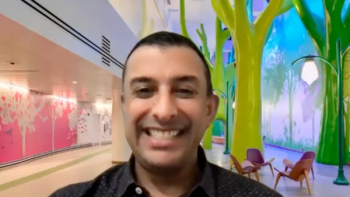
The pediatric neurologist at Nationwide Children's Hospital discussed the epilepsy research studies that he is excited about in 2023. [WATCH TIME: 4 minutes]